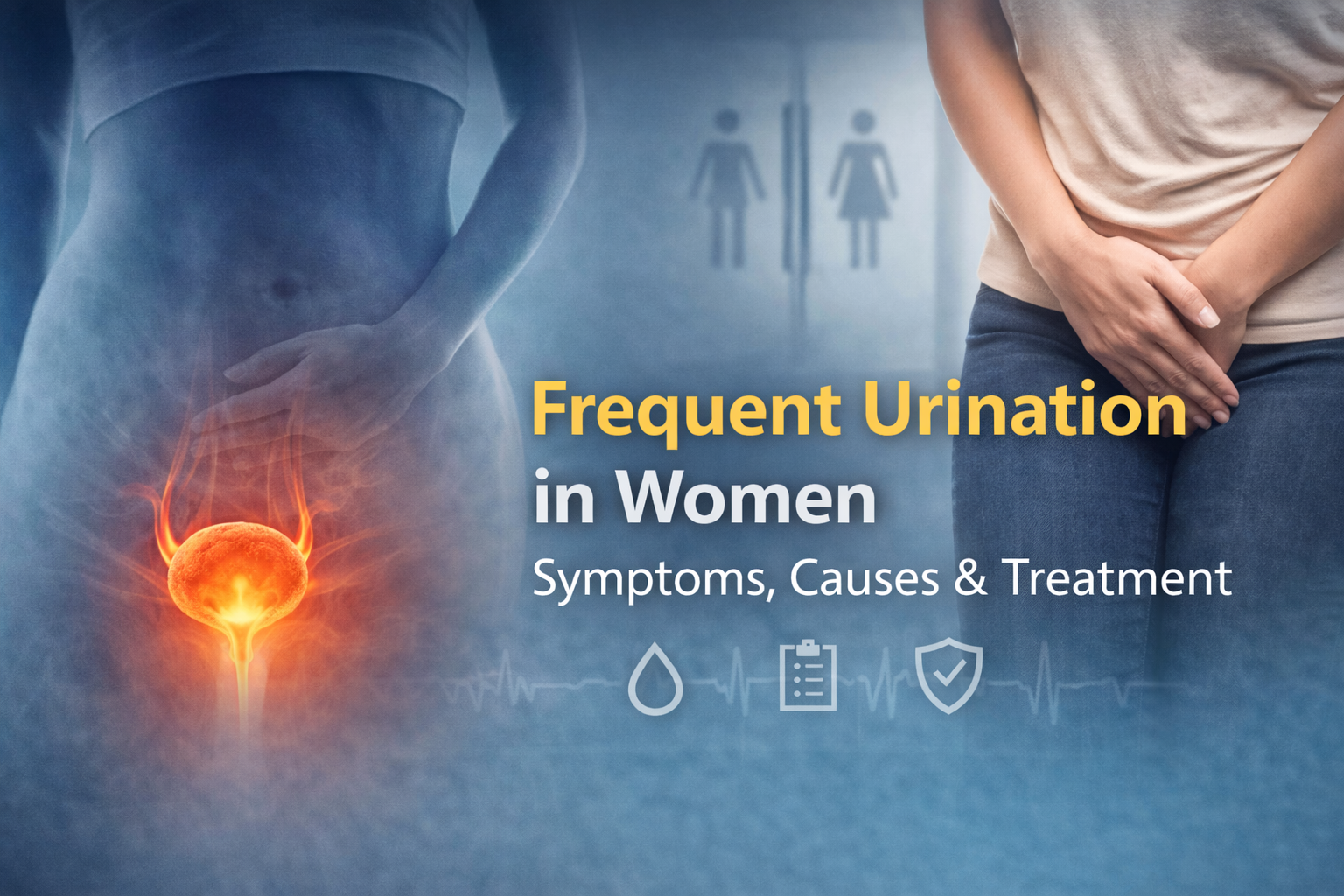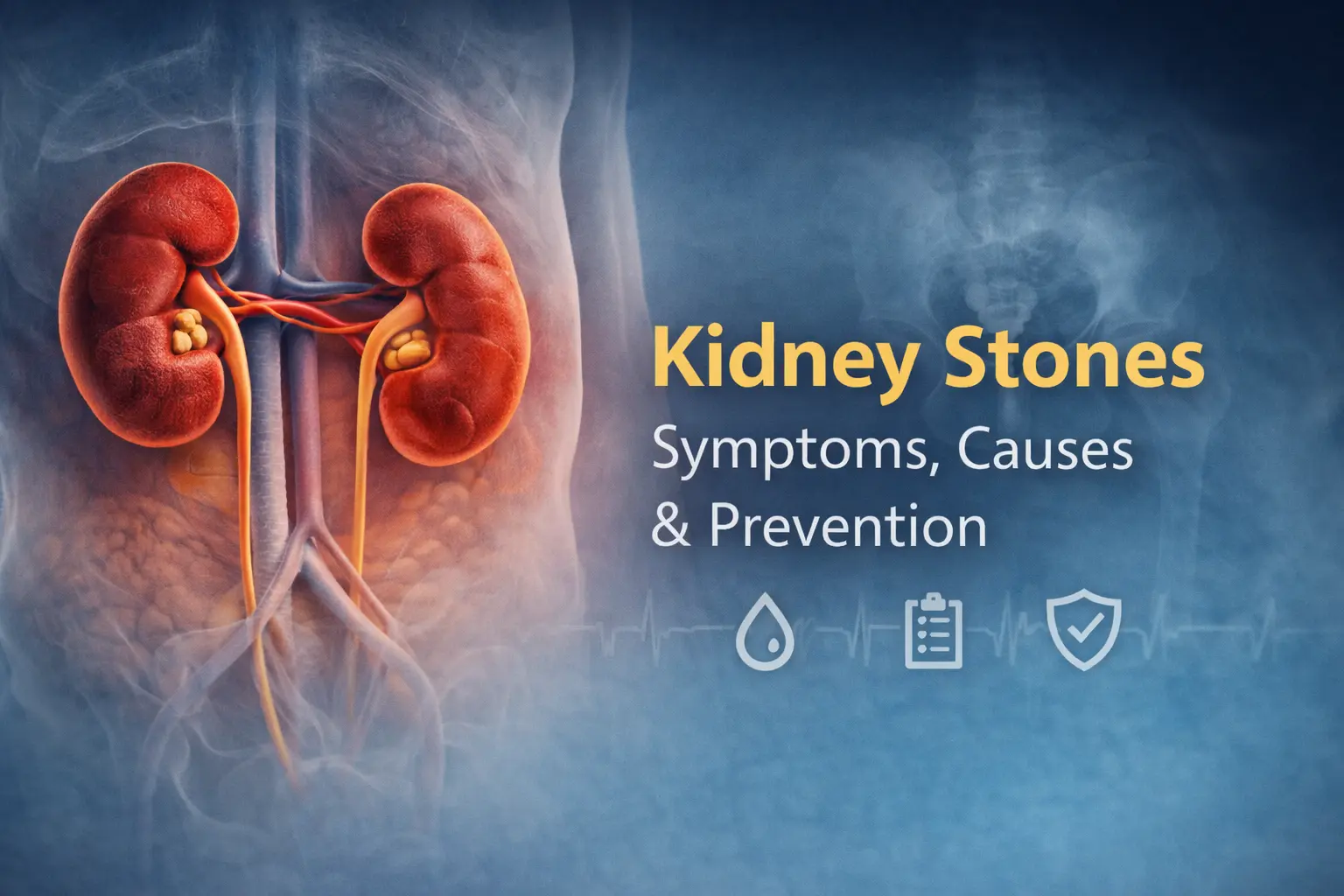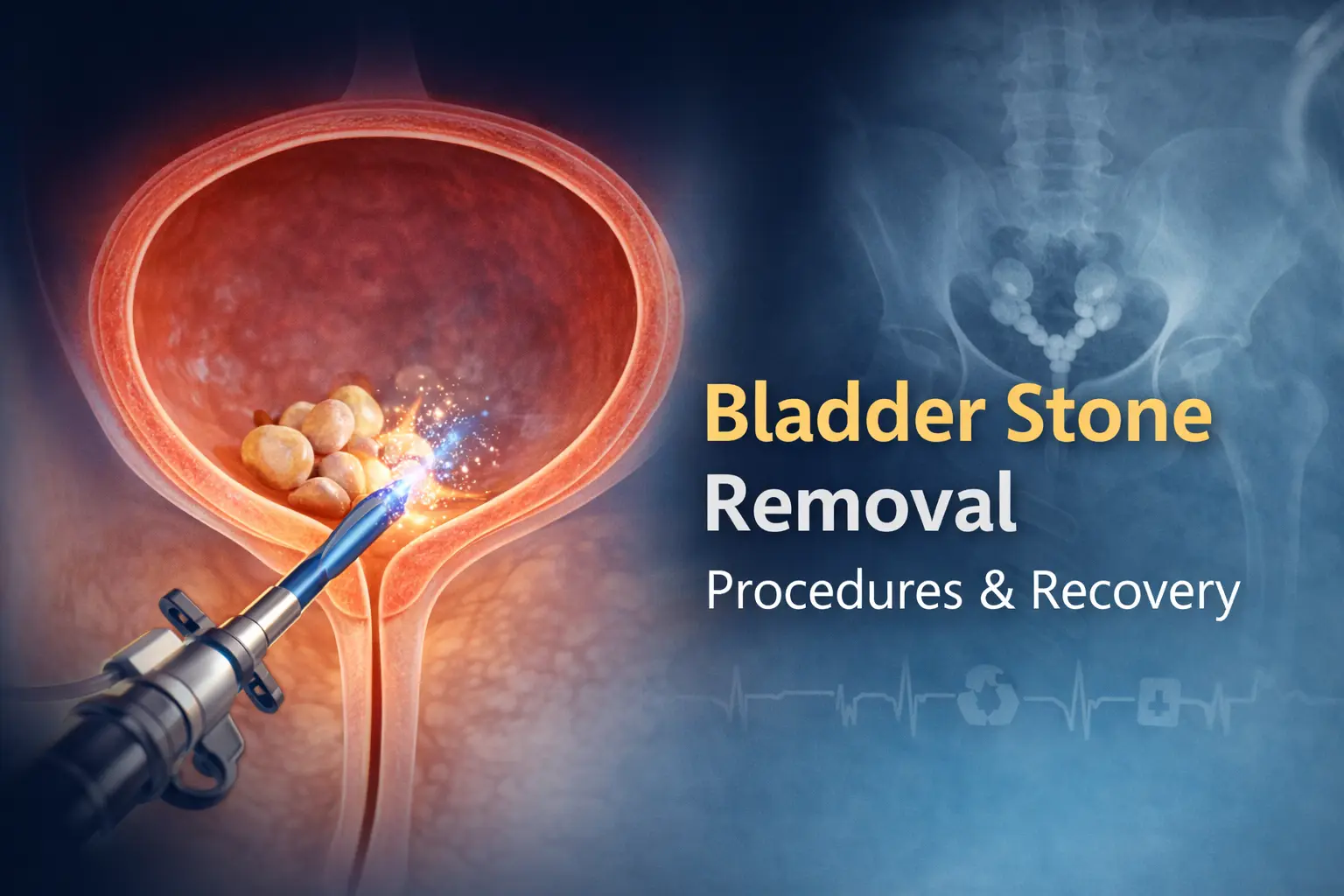

You might have heard of prostatitis from your relative or friend, as it has become one of the most common urinary tract problems for males. The incidence of this medical condition is around 4.9 cases per 1000 people in a year. Prostatitis generally affects people between the ages of 20 and 74 years. Whatever their age, all individuals experience almost the same symptoms during the initial stage of this disease. It may also increase the risk of urinary tract infection, benign prostate hypertrophy, and even prostate carcinoma. You must be worried about what it will lead to and how it can be treated. So, let's spill the beans on prostatitis treatment along with other details.
What Is Prostatitis?
Prostatitis is a disorder that leads to inflammation in the male gland, known as the prostate. This, in turn, causes pain during urination, making it difficult to pass. Additionally, patients also get pain in the groin and genital area. The worst condition occurs when bacteria accumulate and cause infection. But do you know what a prostate gland is and where it is located? It lies just below the urinary bladder and near the urethral tube that passes out urine. This gland is responsible for producing a fluid to make the transport of sperm easier. [embed]https://www.youtube.com/watch?v=wqWIWWfje_8[/embed]
Types Of Prostatitis
As you know, prostatitis is a condition involving inflammation of the prostate gland. It involves the enlarged prostate treatment mainly. Based on this, there are mainly 4 types of conditions that you should know of:
- Acute Bacterial Prostatitis: The reason is bacterial infection. It leads to sudden inflammation, severe pain, chills, fever, and urinary difficulties. It can be easily treated with the help of antibiotics.
- Chronic Bacterial Prostatitis: Quite similar to the previous one, it causes less pain and can fluctuate in intensity. It is usually caused when the treatment cycle for acute prostatitis is left incomplete. Under this, a long treatment with antibiotics is needed.
- Chronic Prostatitis/Chronic Pelvic Pain Syndrome (CP/CPPS): This is the most common and can cause problems in passing urine. It can also lead to problems linked to sexual dysfunction. The exact cause is not known for this, so treatment can be a bit challenging.
- Asymptomatic Inflammatory Prostatitis: As the name suggested, this is a condition that is identified when you go for an examination of some other fertility or sexual issue. The symptoms are absent, but there is an enlarged prostate gland.
Causes Of Prostatitis
Prostatitis can become your health problem anytime. But how does it happen, and who's the culprit behind it? Well, it is commonly caused by bacteria that enter from infected urine or rectum. Other causes of prostatitis include:
- Bacterial infection
- Autoimmune disease
- Nervous system dysfunction
- Pelvic floor muscle damage
- Psychological stress
- Poor immune system activity
- Irritation or inflammation around the pelvic nerve
- Abnormal hormonal activity
It's not contagious and cannot be transmitted from one person to another. Some people believe that it's a type of sexually transmitted infection, but this is a myth. However, patients with urinary tract infections can indeed get infected with this bacteria. Some other risks associated are:
- Any infection in the body
- Trauma to the scrotum and the anus
- Abnormal sized prostate
- Recent use of a catheter into the urethra
Risks Associated with Prostatitis
While prostatitis is not a severe condition, staying aware of it is still important. Most of the times, medication is enough for cure. In some cases, you would need to undergo surgery. Still, there are a few risks that are associated with the condition, which are:
- Chronic or persistent pain
- Painful urination
- Sexual dysfunction
- Urinary tract infections (UTIs)
- Sometimes, psychological issues like stress and anxiety
- Need to use the catheter
Symptoms of Prostatitis
Before getting into the details of prostatitis treatment, let's now understand what you might feel after prostatitis and how to confirm it.
- Pain and discomfort when passing urine
- Cloudy urine
- Abdomen and groin pain
- Frequency of urination increases
- Pain during ejaculation
- Fever and muscle pain
- Pain in the testis and lower back
- Urgent sensation of urination
- Blood can be seen sometimes in urine
If you experience two or more symptoms that have been listed above and the pain doesn't subside, you must get immediate care. Severe conditions require enlarged prostate treatment as soon as possible. Your doctor will ask you to get a urine, blood, and prostatic specimen test along with other imaging tests. Only after these diagnostic procedures you'll get confirmation about your problem. The healthcare professional will then recommend a number of prostatitis treatments according to the severity.
Diagnosis of Prostatitis
For the prostatitis treatment, it is important to first get the diagnosis done. So, the methods that are adopted for the diagnosis are as follows:
- Digital rectal exam
- Blood test
- Urinalysis
There are a few invasive methods as well that are used for diagnosis, which include:
- Cystoscopy
- Transrectal ultrasound
- Urodynamic testing
Once diagnosed, your doctor will guide you through the treatment process further.
Holistic Approaches to Prostatitis Treatment
Prostatitis should be treated through medications, supplements, physiotherapy, mental health therapy, lifestyle changes, etc. Check out these enlarged prostate treatment protocols your doctor might recommend for this medical condition.
1] Medications
If prostatitis is caused by a bacterial infection and your urine analysis confirms it, your doctor will prescribe you antibiotics. When the disease is severe, you may have to get IV antibiotics. It is given in combination with other medicines like alpha-blockers, NSAIDs, and antidepressants. Not all these medicines are given to every patient who has prostatitis. It depends on your symptoms and whether you are facing the problem of anxiety. NSAIDs are preferred as they are pain relievers and reduce inflammation. Moreover, patients having trouble with erection are given sildenafil.
2] Supplements
Quercetin or Cernilton are the best supplements found in plants. These reduce inflammation in the prostate gland. But you shouldn't take it on your own as you might not be aware of quantities. Talk to your doctor before you use these supplements or any home remedy. Another important thing for prostatitis treatment is Beta-sitosterol. Your symptoms of an enlarged prostate might also be reduced by zinc, Vitamin C, Omega-3 fatty acids, pumpkin seeds, and some probiotics. These work in the preliminary stage and when the disease is less severe.
3] Surgical Procedure
Doctors often choose surgery when the patient doesn't respond to medications and other conservative enlarged prostate treatments. Transurethral resection of the prostate (TURP) is a surgery that treats urinary problems due to prostatitis. A surgeon places a resectoscope through the penis tip and passes it into the urethra. Laser prostatectomy and transurethral incision are the other two types of methods. Surgeries are done when patients have symptoms like frequent and difficulty in urination, feeling of not fully emptied bladder, and urinary tract infections.
4] Physical Therapy and Acupuncture
Prostatitis physical therapy is targeted at pelvic muscles. The goal of this treatment is to improve its tone and strength and decrease urinary symptoms. You must do Kegel exercises by tightening your pelvic muscles for 10 seconds and relaxing for another 10. You can do 5 sets of 10 repetitions each in a day. Other physical therapy prostatitis treatments include:
- Coordination Exercises
- Yoga Stretches
- Myofascial release
- Manual therapy
- Diaphragmatic Breathing
- Biofeedback
- Postural training
- Modalities like ultrasound and TENS
- Contrast bath (sit in hot water for 3 minutes and in cold water for 1 minute)
[embed]https://www.youtube.com/watch?v=ylnzVsFnp0w[/embed] Final Words Most men complain about pelvic pain with urinary symptoms, which may be a reason for prostatitis. It can be acute or chronic and requires urgent enlarged prostate treatment and care. Don't worry, as it can be treated with a holistic approach that may include medication, surgery, physiotherapy, acupuncture, and massage therapy. The prostatitis treatment protocol is decided based on the duration you've experienced its symptoms and severity. Further diagnostic tests are recommended if your symptoms don't go away with medications.
Frequently Ask Question's on Finding Comfort Holistic Approaches to Prostatitis Treatment
1] What Are the Symptoms of Prostatitis?
Here are the signs and symptoms of prostatitis you'll experience:
- The feeling of urgent urination
- Difficulty in passing urine
- Pain in the pelvis, genitals, and back region
- Urinary tract infection
- Pain during ejaculation
2] How to Treat Prostatitis at Home?
Before you get prostatitis treatment at home, you must first see a doctor and know its severity. You can then choose the type of treatment, including home remedies like contrast baths, sitting on a cushion, and herbal remedies.
3] What's the Best Treatment for Prostatitis Other Than Surgery?
Surgery is only required in chronic and severe prostatitis. Other better treatments for it are medications like antibiotics, NSAIDs, and painkillers. You must also include physical therapy as it will not result in any side effects and will provide long-term pain relief.
4] What Food Should I Eat If I Have an Enlarged Prostate?
People with enlarged prostates must not take oily, spicy food, caffeine, or alcohol. You must eat leafy vegetables, legumes, fruits, and healthy fats.
5] How Does a Doctor Diagnose Prostatitis?
Blood tests, urine tests, biopsies, ultrasounds, and prostatic specimen tests are some of the best procedures to assess prostatitis in patients.






